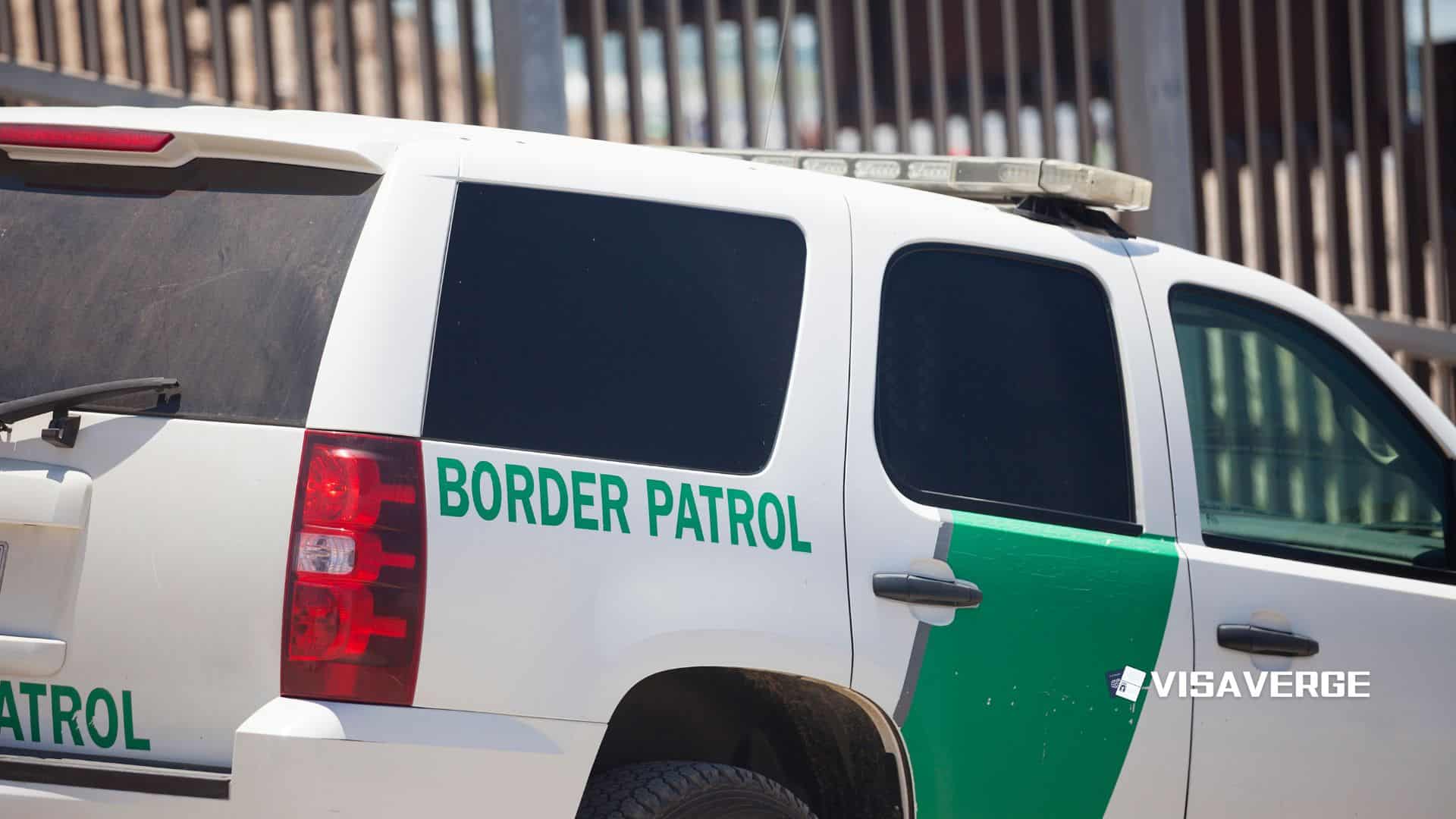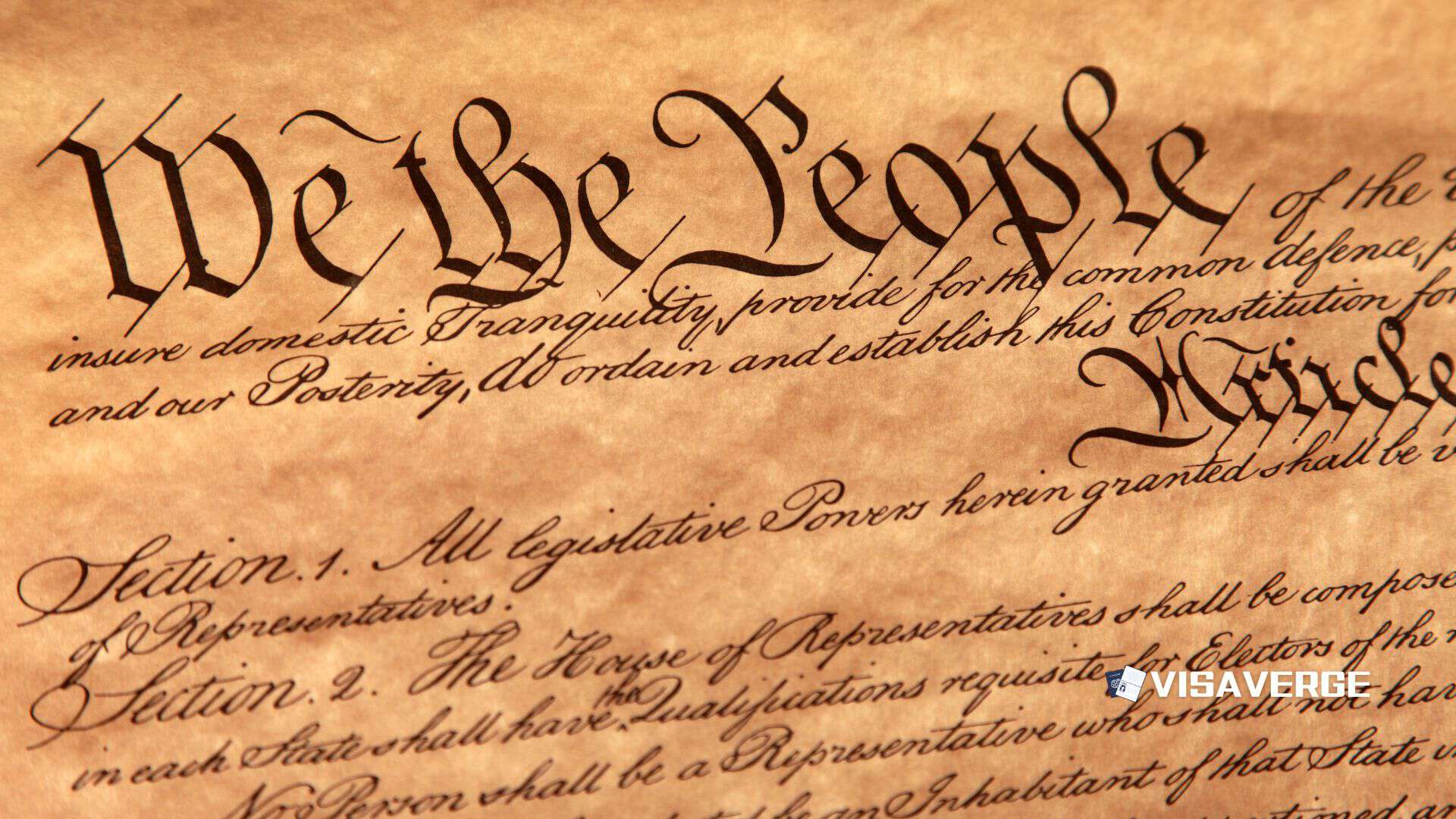As of July 25, 2025, employers across the United States 🇺🇸 are facing a wave of new immigration policy changes and enforcement actions that are reshaping how they hire and support immigrant workers. These updates affect both the H-1B Visa and H-2B Nonimmigrant Visas, as well as the way companies must handle worksite enforcement. Understanding these changes is critical for employers, immigrant workers, and anyone involved in hiring foreign talent. Here’s a clear breakdown of what’s changed, who is affected, what actions are required, and what these developments mean for pending applications and the future of workplace immigration.
Summary of What Changed

Several important updates have taken effect or are expected soon:
- H-1B Visa Denial Rates: The Trump administration has signaled a return to stricter review of H-1B visa applications. Denial rates for these skilled worker visas are expected to rise, echoing the 2018 spike when 15% of initial H-1B applications were denied, compared to just 6% in 2015.
- H-2B Nonimmigrant Visas: For the 2025 fiscal year, the government has temporarily increased the number of H-2B visas available. This move aims to help U.S. businesses, especially those facing severe financial losses without seasonal or temporary workers. The allocation includes 64,716 extra visas, with special caps for workers who have previously held H-2B status.
- Worksite Enforcement: U.S. Immigration and Customs Enforcement (ICE) is ramping up worksite enforcement in 2025. This means more inspections of Form I-9, which employers must use to verify the identity and work authorization of every employee. There is also a greater risk of criminal arrests and penalties for non-compliance.
- Broader Immigration Reform Proposals: The Trump administration is also pushing for stricter border controls, tougher vetting of immigrants, and possible changes to birthright citizenship. These proposals are part of a larger effort to limit both legal and unauthorized immigration.
Who Is Affected
These changes touch a wide range of people and organizations:
- Employers: Especially those in technology, hospitality, landscaping, and other industries that rely on foreign workers. Companies must now be even more careful about following immigration rules and supporting their employees through uncertain times.
- Immigrant Workers: Those on H-1B and H-2B visas face more uncertainty about their status and future in the United States 🇺🇸. Workers under programs like DACA (Deferred Action for Childhood Arrivals) and TPS (Temporary Protected Status) may also be affected by future policy shifts.
- U.S.-born Workers: Research shows that increased deportations and stricter visa policies can also lead to job losses for U.S.-born employees, as businesses struggle to fill key roles.
Effective Dates
- H-2B Visa Increase: The temporary boost in H-2B visas is effective for the 2025 fiscal year, which began on October 1, 2024.
- Worksite Enforcement: ICE’s increased focus on worksite enforcement is already underway and will continue throughout 2025.
- H-1B Visa Denial Trends: While no official start date was announced, the trend toward higher denial rates is expected to take hold immediately, based on administration statements and recent history.
Required Actions for Employers
Employers must take several steps to protect their businesses and support their workers:
1. Conduct Regular Form I-9 Audits
– Review all employee records to ensure that Form I-9 is properly completed and stored for every worker. The Form I-9 is the official document used to confirm an employee’s identity and authorization to work in the United States 🇺🇸. You can find the current version and instructions on the USCIS Form I-9 page.
– Correct any mistakes or missing information right away. Keep records organized and ready for inspection.
2. Provide Legal Support for Employees
– Offer access to immigration attorneys or legal resources for employees facing visa issues or possible deportation.
– Help workers understand their rights and options if their visa is denied or if they are targeted for enforcement.
3. Develop Clear Communication Strategies
– Keep employees informed about policy changes and what they mean for their jobs and immigration status.
– Provide regular updates and create a safe space for workers to ask questions or share concerns.
4. Engage with Legal Experts
– Consult with experienced immigration lawyers to stay up to date on changing rules and to get advice on complex cases.
– Legal experts can help you prepare for audits, respond to government requests, and plan for possible changes to visa programs.
5. Join Compliance Programs
– Consider joining the ICE Mutual Agreement between Government and Employers (IMAGE) program. This initiative helps employers strengthen their hiring practices and reduce the risk of hiring unauthorized workers. More information is available on the ICE IMAGE program page.
Implications for Pending Applications
If you or your employees have pending H-1B Visa or H-2B Nonimmigrant Visa applications, here’s what you need to know:
- H-1B Visa Applications: Expect longer processing times and a higher chance of denial. The government is reviewing applications more closely, looking for any errors or missing information. Make sure all documents are complete and accurate.
- H-2B Visa Applications: With the temporary increase in available visas, some businesses may have a better chance of getting approval. However, the extra visas are capped and may run out quickly, especially for returning workers. Apply as early as possible and follow all instructions closely.
- Other Programs (DACA, TPS): If you have employees under DACA or TPS, be aware that these programs may face new restrictions or even end, depending on future policy changes and court decisions. Stay in touch with legal counsel and monitor official updates.
Practical Effects on Employers and Workers
These policy changes are already having real effects in workplaces across the country:
Uncertainty and Anxiety
– Many employers, especially in tech and seasonal industries, are struggling to support immigrant employees who are worried about their future. Workers on temporary visas often feel anxious about whether they can stay in the United States 🇺🇸 or if their families will be affected.
Economic Impact
– Research shows that increased deportations can lead to job losses for both immigrant and U.S.-born workers. For every additional deportation, there may be about 1.24 fewer employed immigrants, which can hurt businesses and local economies.
Compliance Challenges
– Employers must now pay even closer attention to immigration rules. Mistakes on Form I-9 or hiring unauthorized workers can lead to heavy fines, criminal charges, and even being banned from federal contracts.
Expert Analysis and Perspectives
Legal Experts
– Many lawyers warn that the administration’s approach could make it much harder for businesses to hire foreign talent. Higher denial rates for H-1B visas and stricter vetting mean that even well-qualified applicants may be turned away.
Advocacy Groups
– Groups that support immigrants argue that increased enforcement will hurt both immigrant and U.S.-born workers by reducing job opportunities and slowing economic growth.
Employer Concerns
– Companies are worried about how these changes will affect morale and retention. When employees feel insecure about their immigration status, they may leave for other jobs or even other countries.
Future Outlook and Pending Changes
Looking ahead, several possible changes could further affect employers and immigrant workers:
- Further Restrictions on DACA and TPS: The administration may try to limit or end these programs, which would take away work authorization from many employees.
- Legal Challenges: Some executive orders and new rules are being challenged in court. This could delay or change how and when they are enforced.
- Continued Uncertainty: With ongoing policy shifts, employers and workers should prepare for more changes in the months ahead.
Official Resources for Employers and Workers
To stay informed and compliant, use these official resources:
- U.S. Citizenship and Immigration Services (USCIS): For updates on visa policies, forms, and application processes, visit the USCIS website.
- U.S. Department of Homeland Security (DHS): For information on enforcement and policy changes, check the DHS website.
- ICE IMAGE Program: To learn about compliance programs, visit the ICE IMAGE page.
Step-by-Step Procedures for Employers
Here’s a simple checklist for employers to follow:
- Audit Form I-9 Records
- Review every employee’s Form I-9 for accuracy.
- Fix any errors and keep records up to date.
- Support Employees
- Provide access to legal help for visa or deportation issues.
- Offer clear information about policy changes.
- Stay Informed
- Sign up for updates from USCIS and DHS.
- Monitor news from trusted sources like VisaVerge.com, which reports on the latest immigration trends and policy shifts.
- Consult Legal Experts
- Work with immigration lawyers to handle complex cases and prepare for audits.
- Join Compliance Programs
- Consider joining the IMAGE program to strengthen your hiring practices.
Common Questions and Concerns
How can employers support immigrant workers during these changes?
– Employers can offer legal consultations, keep employees informed about policy updates, and provide resources for dealing with visa issues.
What does increased worksite enforcement mean for my business?
– More inspections and stricter rules can lead to fines, criminal charges, and even being banned from federal contracts if you’re not compliant. It can also hurt employee morale and make it harder to keep good workers.
How do the new policies affect H-1B and H-2B visas?
– H-1B visas are likely to face higher denial rates, so it’s important to submit complete and accurate applications. H-2B visas have a temporary increase, but the extra spots may fill up quickly.
What should I do if my employee’s visa is denied or delayed?
– Work with an immigration lawyer to explore options, such as reapplying, appealing, or finding alternative visa categories.
What happens if I make a mistake on Form I-9?
– Fix errors as soon as you find them. If ICE audits your records and finds mistakes, you could face fines or other penalties.
Implications for Pending Applications
If you have pending applications for H-1B Visa or H-2B Nonimmigrant Visas, be prepared for longer wait times and more detailed reviews. Make sure all paperwork is complete and accurate. If you receive a Request for Evidence (RFE) or a denial, respond quickly and seek legal advice.
Key Takeaways and Next Steps
- Be Proactive: Don’t wait for an audit or enforcement action. Review your records, support your employees, and stay informed about policy changes.
- Communicate Clearly: Keep your team updated and provide a safe space for questions and concerns.
- Seek Expert Help: Immigration law is complex and changing quickly. Work with legal experts to protect your business and your workers.
- Use Official Resources: Rely on trusted government websites and programs for the latest information and guidance.
For More Information
Employers and workers should regularly check the USCIS website for official updates on visa policies, forms, and application instructions. This is the best source for accurate, up-to-date information on immigration requirements.
As reported by VisaVerge.com, the current environment demands that employers and immigrant workers stay alert, informed, and ready to adapt. By following these steps and using official resources, you can better manage the risks and challenges of today’s immigration landscape.
Conclusion
The immigration landscape in the United States 🇺🇸 is changing quickly, with new rules and enforcement actions affecting both employers and immigrant workers. By understanding what’s changed, who is affected, and what actions are required, you can protect your business, support your employees, and stay compliant with the law. Take the time to review your practices, seek expert advice, and use official resources to stay ahead in this challenging environment.
Learn Today
H-1B Visa → A U.S. visa allowing employers to hire skilled foreign workers in specialty occupations temporarily.
H-2B Nonimmigrant Visa → A visa permitting temporary non-agricultural workers to fulfill seasonal or peak labor demands.
Form I-9 → Official U.S. document verifying employees’ identity and authorization to work in the United States.
ICE → U.S. Immigration and Customs Enforcement agency responsible for enforcing immigration laws and workplace compliance.
DACA → Deferred Action for Childhood Arrivals program protecting eligible undocumented immigrants from deportation temporarily.
This Article in a Nutshell
As immigration policies tighten in 2025, employers face rising H-1B denials and increased H-2B visas. ICE boosts worksite enforcement, requiring strict Form I-9 audits. Staying compliant and supporting immigrant workers is essential to navigating these impactful changes and securing workforce stability amid uncertainty.
— By VisaVerge.com













